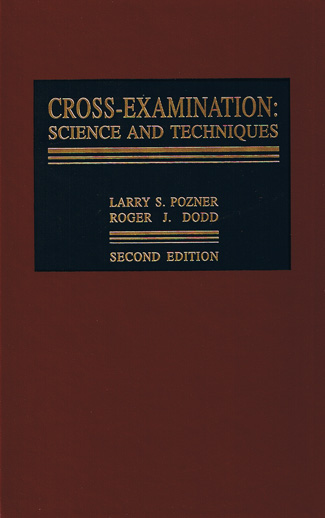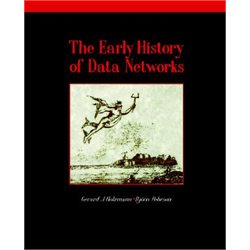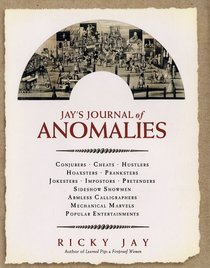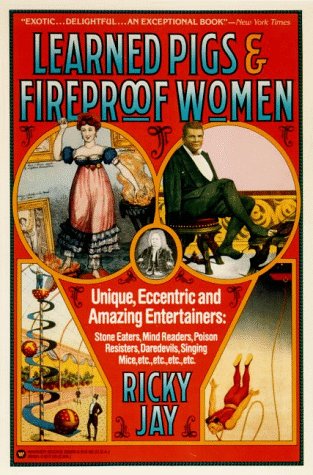For the past few weeks, in response to a reader’s request, I’ve offered advice to new radio program directors.
This week, without being asked, I offer an odd piece of advice to PDs who’ve been programming for more than a couple of years:
Read Weird Books
A good radio program director already reads industry trade publications (online and off).
Make it a point always to be reading, in addition, at least one non-radio, non-business book.
No, I am not referring to books about your hobbies (e.g., fishing) or your passions (e.g., your religion).
My bookshelf contains lots of books about radio, marketing and advertising. Those don’t count.
Also lots of books about my extra-curricular interests: psychology, stage magic, and blackjack. (A long time ago I was a serious — and winning — blackjack player. For the three or four players reading this, I’ve got collector’s editions of Thorpe, Wong, Revere, Humble, Andersen, Braun….)
(Side note: Many years ago I ordered what since has become “the” classic blackjack book by “the” big blackjack name. It arrived in the mail with a note from the author: “Are you the Dan O’Day I used to listen to on the radio in San Francisco?” Made my day.)
None of those “hobby” books counts.
Neither do the books by my favorite novelists.
So what books “count”?
 CROSS-EXAMINATION: SCIENCE AND TECHNIQUES by Larry S. Pozner and Roger J. Dodd. 761 pages, for trial lawyers. I bought it new for $95.
CROSS-EXAMINATION: SCIENCE AND TECHNIQUES by Larry S. Pozner and Roger J. Dodd. 761 pages, for trial lawyers. I bought it new for $95.
Didn’t get around to reading it for a few years.
Ended up creating an entire commercial copywriting seminar around the book’s techniques.
Wait!
Back up.
When I bought the book, I had no idea I’d ever use it “professionally.” Something about it simply caught my interest.
Ended up being a very cool seminar.
 Another weird book: THE EARLY HISTORY OF DATA NETWORKS by Gerard Holzmann and Bjorn Pehrson.
Another weird book: THE EARLY HISTORY OF DATA NETWORKS by Gerard Holzmann and Bjorn Pehrson.
Flipping through an in-flight magazine while en route to a seminar somewhere, I came across a fascinating article about an optical “data network” — mirrors reflecting signals from station to station to station across hundreds of miles — that existed in Europe a few hundred years ago.
Amazed at what I read, I subsequently bought this book by the article’s authors.
At the turn of the 18th Century, well before the electromagnetic telegraph was invented, many countries in Europe already had fully operational data communications systems, with close to one thousand network stations.
This book documents the many attempts throughout history to develop effective means for long distance communications. (The oldest recorded attempts date back a couple of thousand years and include ingenious uses of homing pigeons, mirrors, flags, torches, and beacons.)
Haven’t figure out how to use this information yet, but my mind is richer for having read the book.

 If you’ve been looking for an incredible, mind-blowing promotion that will set your market on fire, invest in JAY’S JOURNAL OF ANOMALIES or LEARNED PIGS & FIREPROOF WOMEN, both by Ricky Jay.
If you’ve been looking for an incredible, mind-blowing promotion that will set your market on fire, invest in JAY’S JOURNAL OF ANOMALIES or LEARNED PIGS & FIREPROOF WOMEN, both by Ricky Jay.
You won’t find any radio promotions in either book. But you’ll be inspired by the lengths to which people throughout history have gone to entertain or influence others.
(I personally can’t count those two books as “weird,” because Ricky Jay is a card magician. So they fit among my magic books.)
Why should you read weird books?
Because when you expand your areas of knowledge and interest, you add to your creative toolbox.
One way to insure your success as a radio programmer is to have access to as rich and varied a toolbox as possible.



Comments on this entry are closed.
Fantastic tip Dan thanks for the library card 🙂 I’ll definitely keep these top of mind and here’s a new one to add, I found this one lying about in our breakroom “Triumph- Life after the Cult A Survivors Lesson” by Carolyn Jessop a fascinating read. Makes you think and gives you insight to a very strange world.
Scott Larson